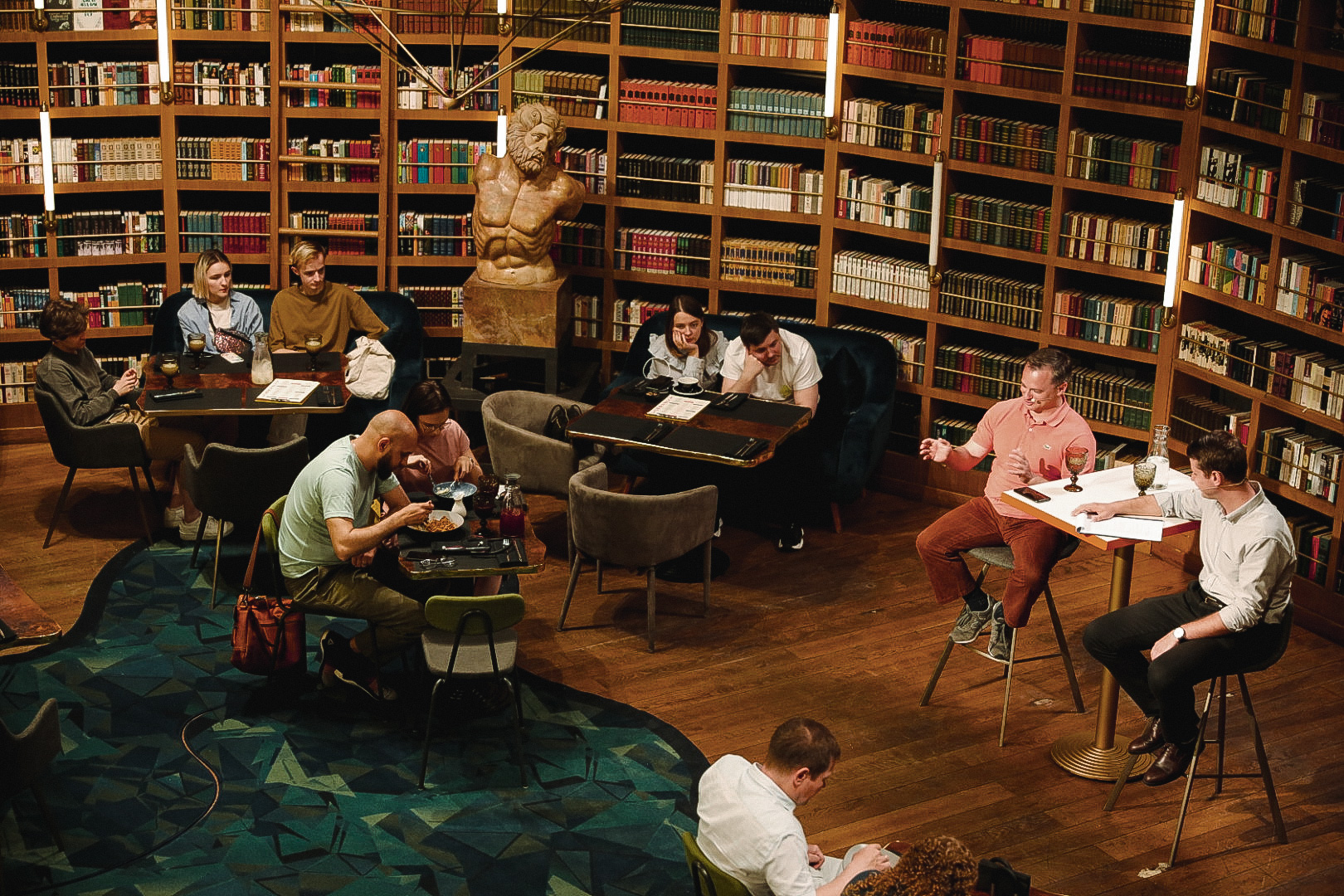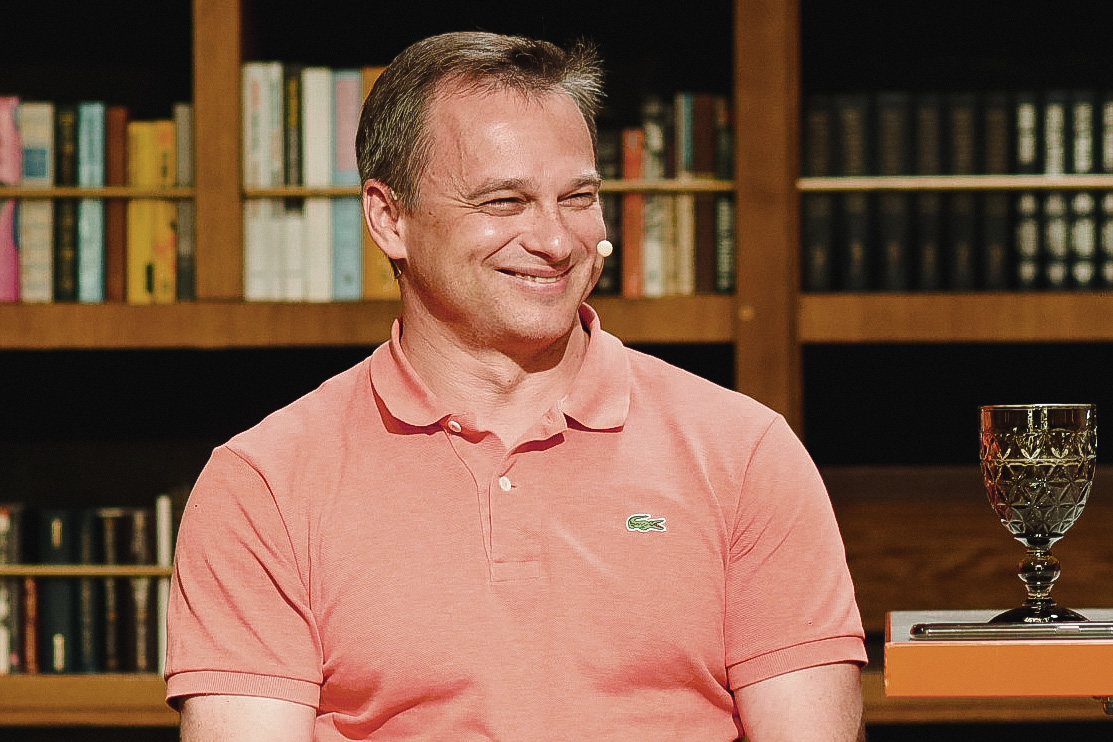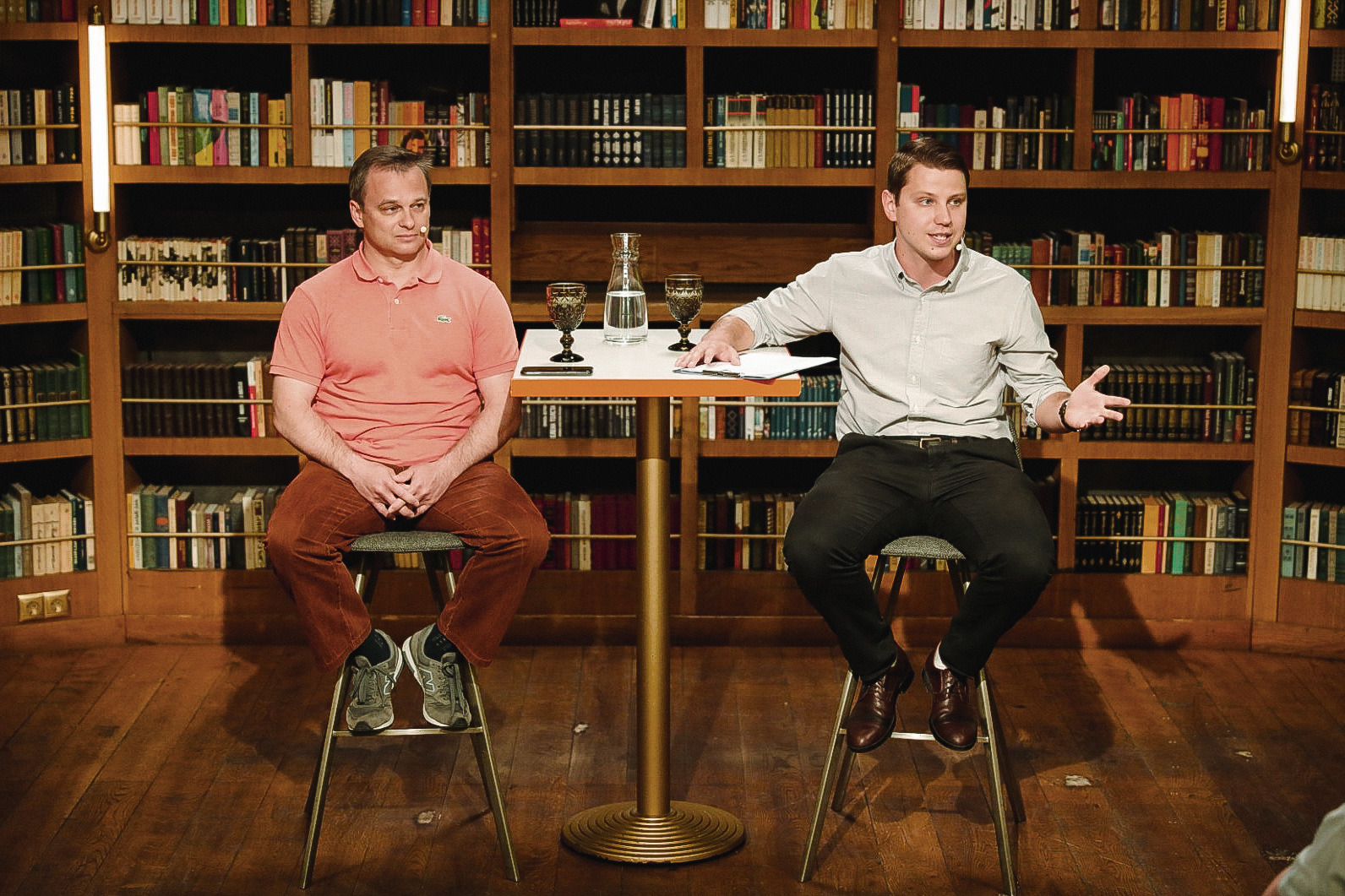Dmitry Naumov took part in Brunch with a Scientist in Polytechnic Museum
News, 17 May 2021
In spring 2021, the Polytechnic Museum resumed its Sunday Brunches with Scientists organized in the frames of the public programme “Polytech in the city”. These are the meetings over a cup of coffee in the best Moscow cafes and bars at which participants can learn about the latest news of the scientific world.
Yesterday, such a meeting took place in the centre of Moscow, in the Community Moscow restaurant. The guest of the event was Dmitry Naumov, Doctor of Physics and Mathematics, Head of the JINR Neutrino Programme. The host Kirill Fuks, a physicist, a specialist in accompanying visitors of the Polytechnic Museum, interviewed Dmitry Naumov in detail about the construction of the Baikal Neutrino Telescope, neutrino physics, ways to study the evolution of distant galaxies, the path to science, and why it is necessary to invest in basic research. Participants of the brunch had a unique opportunity to get answers from the world-level scientist in the fields of neutrino physics to the most tricky questions.
Photos: Polytechnic Museum
Video recording timing:
00:00:40 Introduction
00:01:50 Joint Institute for Nuclear Research
00:03:02 Who is Dmitry Naumov?
00:03:19 What did Dmitry Naumov do on Lake Baikal?
00:07:36 What is used in the construction of telescopes?
00:15:24 How is the construction of telescopes being held?
00:18:13 How does the JINR team work?
00:19:47 How much money do they earn when building telescopes?
00:20:17 How is it possible to get into the construction team?
00:20:54 What specialists are required now?
00:21:56 How long is the string and how many sensors are there?
00:23:16 Economic effect for the state from the construction of telescopes
00:26:53 How has Dmitry Naumov come to blogging?
00:29:57 Video from the expedition. What does a telescope look like?
00:33:18 What is a neutrino?
00:44:11 Why are neutrinos difficult to catch?
00:49:13 Why does the Cherenkov radiation appear?
00:53:03 How do different types of neutrinos differ from each other?
00:55:22 Why are neutrinos compared to messengers?
00:57:08 How is it possible to distinguish black hole flow from what the sun emits?
00:59:56 How is it possible to find out in space from which black hole the energy comes from?
01:05:35 What natural phenomena interfere with measurements?
01:09:08 Does this expedition study living organisms of Lake Baikal? Do they interfere with the construction of telescopes?
01:13:26 Project “Baikal International School of Elementary Particle Physics and Astrophysics”
01:16:00 Why do scientists often change laboratories?
01:18:02 What language does a specialist use to write software for research?
01:19:19 What are the results of the study of energy flows on Lake Baikal and are these data open to the public?
01:22:37 Blitz



